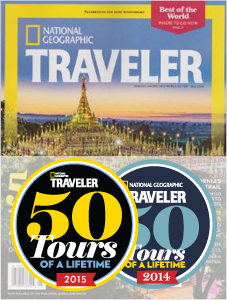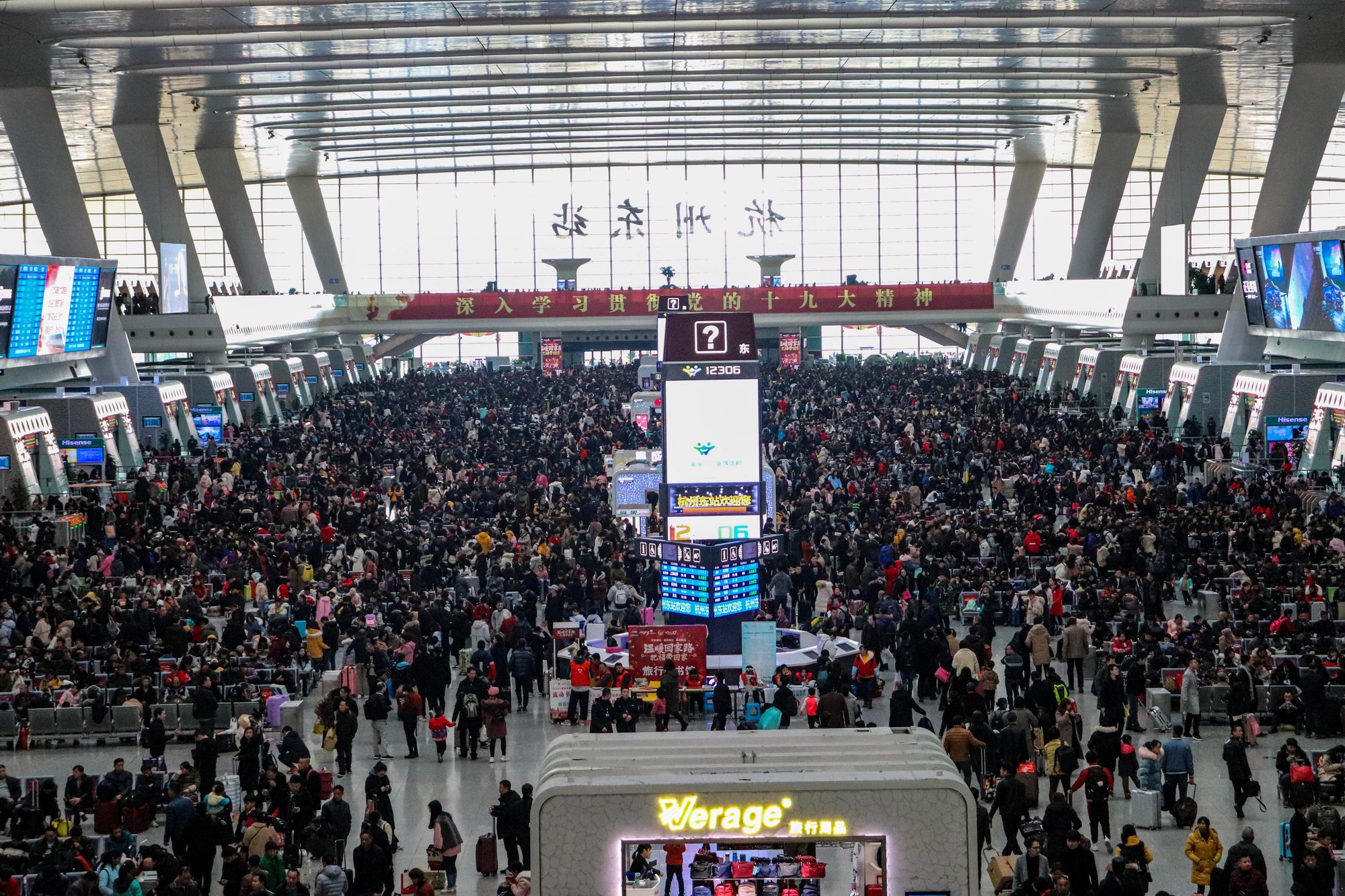With a Bit of Preparation, You Can Beat the Crowds and the Chaos
And just like that…the 2023 holiday travel season is upon us, and it is expected to be a doozy. The long spell when we couldn’t go anywhere has led to pent-up demand that is expected to burst into a record travel season this year. The travel gods—actually the Transportation Safety Authority (TSA)—are telling us it’s going to be a very challenging time. “We expect this holiday season to be our busiest ever. In 2023, we have already seen seven of the top 10 busiest travel days in TSA’s history,” said TSA Administrator David Pekoske. “We are ready for the anticipated volumes and are working closely with our airline and airport partners to make sure we are prepared for this busy holiday travel season."
The travel landscape in 2023 is not just recovering; it's thriving. The pandemic has whetted people’s appetites for more travel, it seems, and there’s a palpable sense of excitement and anticipation in the air, with people yearning to make up for lost time. We can also thank the pandemic for heightened interest in sustainable travel, environmental conservation, and eco-friendly travel options. Additionally, the pandemic has added momentum to the slow travel movement, with travelers spending longer periods in fewer locations, seeking a deeper connection with a place and its people. This shift towards sustainable and immersive travel is not just a fleeting trend; it's a profound transformation in how we explore and experience the world. These changes range from increased health consciousness to a greater appreciation for less crowded, off-the-beaten-path destinations.
Avoid the frenzy and arrive in a zenlike state. Photo by Sergio Capuzzimati on Unsplash.
All of which points to a lot of travel this holiday season and the possibility of chaos as well as excitement. But with a bit of forethought, you can sidestep the hassle and arrive at your destination in a more zenlike state.
Here’s what to do before you go:
Check the Weather
You can’t always rely on the airline to inform you about weather conditions for your flight. So make sure to check the weather before a trip. Start up to a week before flying to be aware of any possible storms or other weather events that might disrupt your trip. Make sure you not only check to see what’s going on at your departure and destination points but also at any stops along the way. If there’s bad weather at your airline’s hub, for example, it may affect your flight even if you are not flying through there.
You can find detailed information at the National Oceanic and Atmospheric Administration’s National Forecast Chart, which will show you all of the major weather systems and fronts across the United States, with one-day, two-day, and three-day forecasts. The National Weather Service, the Weather Channel, and AccuWeather also provide reliable weather forecasts.
Have a Plan B
Even with great planning, “Mishaps happen to even the most seasoned traveler,” reports the Washington Post, including to veteran world travelers like Tony Wheeler, co-founder of the Lonely Planet guidebook series. The Lonely Planet, which has sold 150 million guidebooks covering 221 countries, was one of the most authoritative voices for the pre-internet adventure traveler. But Wheeler is still subject to the same aggravation as the rest of us when traveling. “During his recent trip in Brazil,” explains the Post, “the airline repeatedly canceled his flight to New York. He spent four hours standing in line at the airport counter trying to sort it out. ‘You can fly across the Atlantic in the Concorde in that amount of time and have a meal, as well,’ he said dryly."
So make a plan for what you’ll do if you get stuck. If there’s a delay, how many hours can you wait before needing to make other flight plans? Should you rebook yourself or ask your airline to help? Knowing the answers to these questions will help you act quickly if things start to fall apart. For a thorough rundown on how to handle a flight delay or cancellation, including what you can and cannot expect from your airline, check out this helpful article from afar.com.
Health Precautions are Still Vital
We may be exhausted by pandemic restrictions after four years, but the truth is COVID-19 is still a factor in traveling. The Centers for Disease Control and Prevention (CDC) recommends that you avoid travel until you've had all recommended COVID-19 vaccine and booster doses.
It’s also important to keep current on the situation in the country you will be visiting. For this, you should check traveloffpath.com, an extremely helpful site that maintains an updated list of test, vaccine, and other requirements for travelers around the globe. The U.S. Dept. of State also issues worldwide advisories as do the World Health Organization (WHO) and the Centers for Disease Control and Prevention (CDC).
What to Pack (and What Not to Pack)
Travel industry guru Rick Steves’ advice to his millions of readers: “The importance of packing light cannot be overemphasized. You'll walk with your luggage more than you think you will. Before flying to Europe, give yourself a test. Pack up completely and walk around your house or block. Or practice being a tourist in your hometown for an hour. Fully loaded, you should enjoy window-shopping. If you can't, stagger home and thin things out.”
Steves only travels with a carry-on and recommends that his readers do the same. This not only saves time at the beginning and end of your flight but also protects you from the possibility that your baggage can be lost or stolen.
Start your packing with an empty suitcase. Why? “Passengers who start with an empty bag while packing are less likely to bring prohibited items through the checkpoint,” the TSA advised in a recent release. As for determining what’s allowed and what’s prohibited, the agency says, “If you can spill it, spray it, spread it, pump it, or pour it, then it is a liquid and must be packed in your checked bag.”
Last but definitely not least, don’t forget the following essentials: adaptors, a first-aid kit, and copies of important documents.
Get to the Airport Early
We can’t emphasize this enough. You will be much happier if you arrive with plenty of time to spare before your flight. Most airlines now advise arriving at least three hours before your scheduled departure so that you have time to park your car, check bags, and get through security screening lines that are likely to be longer than usual.
If you’re well-prepared, you can start relaxing before you even take off. Photo by jeshoots on Unsplash.
S**t Happens
Keep this in mind: There is always the possibility of a travel hiccup, but most of the time these can be resolved easily.
When delays and cancellations pile up, and people begin to get testy (or worse), kindness and empathy can help smooth the way with a weary gate, airline, or customer service agent who is having a hard day. Remember they are not responsible for the problem, whatever it is, and they will likely help you if they can. Your best advice in this situation is that old British chestnut: Keep calm and carry on.
Relax and Enjoy Your Travel Time
Now that you’ve planned, prepared, and packed properly, you can expect a smooth start to your trip. You can skip the frenzy and start relaxing before you even take off.
Now’s the Time…For Planning Summer Travel to Europe
Blue Lagoon, Iceland. Photo by Daniel Schiobl on Unsplash.
Going to Europe this summer? Just as last year, the continent is expected to be one of the most popular destinations for travelers. Flights, tours, and hotels in Spain, Portugal, Italy, Turkey, Finland, and Iceland are booking up quickly. If you are planning a trans-Atlantic adventure, check out our Europe tour offerings then call us to make reservations now while there is still space. Contact us at travel@globalbasecamps.com to begin planning.














